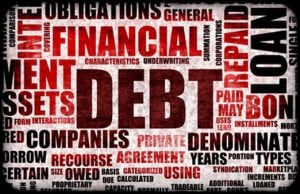 Carrying debt into retirement?
Carrying debt into retirement?
This could be a game changer for retirees — not paying off as much debt as possible before they leave the office for good.
So says a report on TheStreet.com, which points out that the effects of the new tax law can change how workers carrying debt should approach retirement.
Recommended For You
For instance, for many people in the wake of the new law, there are no longer any benefits to carrying a mortgage or home equity loan and they'd be better off paying off, or at least reducing, their debt levels.
And of course it's not that simple; lots of factors have to be taken into consideration before people make their final decisions (or end up in a position where they have no choice).
That includes the fact that Americans are carrying more debt than ever as they age. Back in 2003, people 60 and older had $1 trillion in household debt (mortgages, home equity loans, auto loans, student loans, credit cards and the like).
But in 2016, that had risen nearly threefold; by then, older Americans had $2.84 trillion in household debt.
"As Americans enter retirement and reach the end of the accumulation phase of their lifecycle, the optimal management of debt needs to be well-thought-out," Robert Westley, a wealth adviser at Northern Trust and a member of the AICPA Personal Financial Specialist Credential Committee, is quoted saying in the report. Westley adds, "Debt is only one component of the financial puzzle and cannot be assessed in isolation."
One factor, says Westley, is where income comes from in retirement. How much comes from earnings, personal assets, Social Security, a traditional pension or some other source?
And next, you need to evaluate what it will do to your cash flow if you use liquid assets to pay down certain debts.
Would-be retirees also need to know whether they're in for a tax penalty if they pull retirement assets to pay off debt—and also whether cutting their debt level will leave them without an emergency cushion.
Depending on how much they're paying in interest, it could still be worth it to pay down debt.
According to Westley, "In general, consumer debt with high-interest rates, such as credit cards, personal loans, and auto loans contain no tax benefits and are used to buy depreciating assets." And that could not only create a "meaningful drag" not just on retirement income but also on financial assets that will be needed later during retirement. And a loss of standard of living during retirement is something to be avoided.
When it comes to such things as mortgages and HELOCs, you need to evaluate the interest rate against the tax benefit (if any) attached to the debt.
In addition, remember those new tax law changes; there's now a little less incentive to sock money away in retirement accounts but perhaps a little more to pay off a mortgage or a HELOC. Not that retirement accounts should be neglected, but you should run the numbers before settling on a strategy.
When in doubt, paying down debt provides a "guaranteed and risk-free return on the funds" used to pay it down, the report says.
But if there's not enough money, other options like downsizing might have to be considered.
According to the report, generally households aged 65 and older spend about 35 percent of their income on housing costs. That can include a mortgage, a HELOC, property taxes, home insurance, maintenance and other such expenses.
The other big option might be to work longer, especially since a recent study has found that doing so pays off better in retirement than increasing one's retirement saving rate.
© 2025 ALM Global, LLC, All Rights Reserved. Request academic re-use from www.copyright.com. All other uses, submit a request to [email protected]. For more information visit Asset & Logo Licensing.







